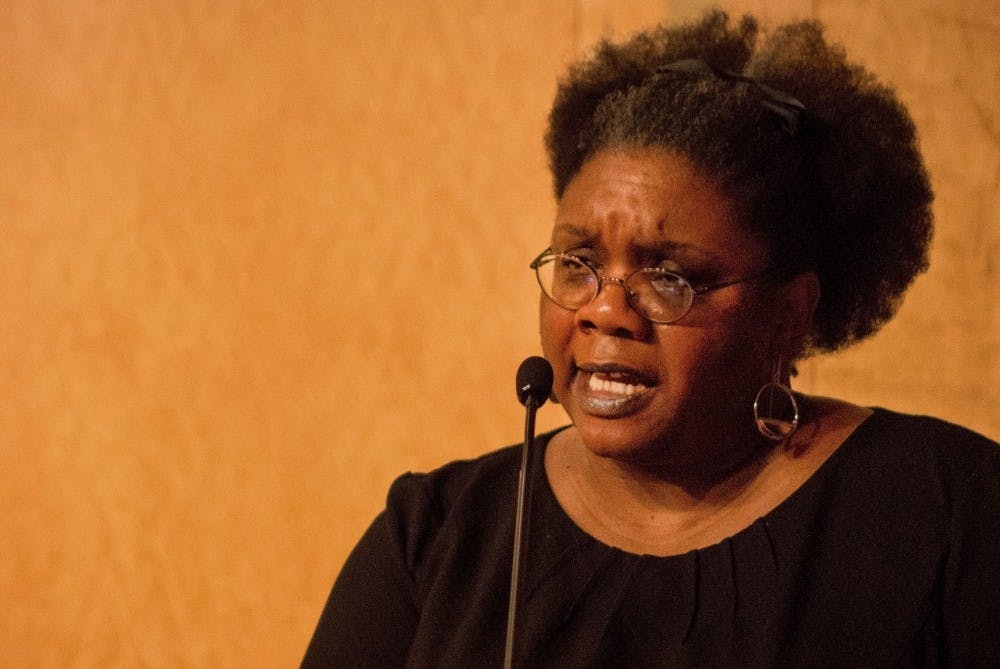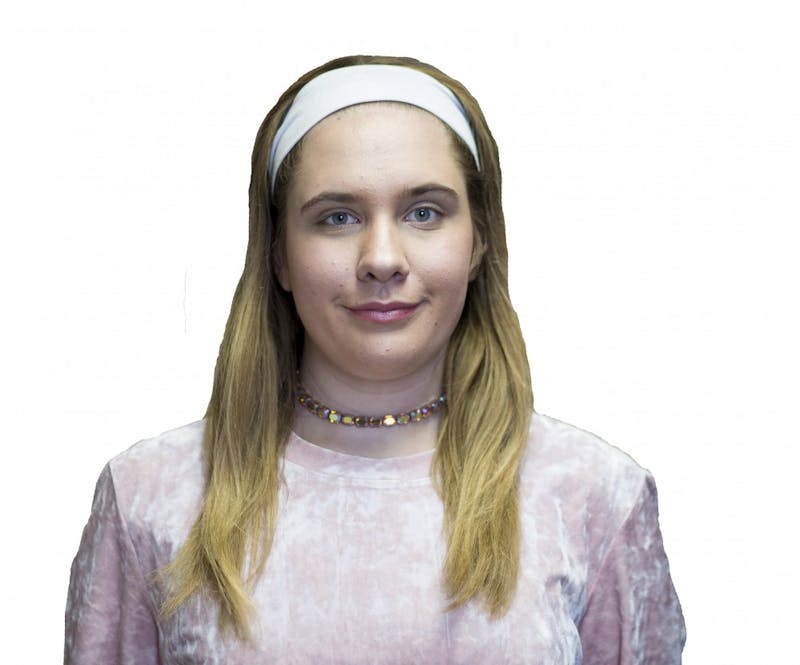Q&A: Renowned poet thanks Detroit for its complexity, shares journey with her craft
Poet Vievee Francis discovered her need to pursue poetry beneath the complexity of Detroit.
Francis provided a reading of her latest book, "Forest Primeval," at Central Michigan University Tuesday, Nov. 28 as part of the Meijer Visiting Writers Series.
A Texas native, Francis draws inspiration from Detroit and its complexities regarding community, economy and artistic growth. She lived in the city for 15 years, fostering a community for young poets.
Francis is the associate editor for Callaloo, an artistic journal centered on exhibiting African diaspora through art, literature and critical essays.
She now resides in Hanover, New Hampshire as an associate professor of English at Dartmouth College.
She is the recipient of a 2010 Kresge Fellowship, the 2017 Kingsley Tufts Award, 2009 Rona Jaffe Writer's Award and the 2016 Hurston/Wright Legacy Award for her poetic works.
She sat down with Central Michigan Life to discuss her influences, career and advice to young poets in Michigan.
CM LIFE: What makes Detroit an ideal home for young artists?
Francis: There aren’t a lot of resources there. On one hand it would seem like that would stifle artistic progression, but what it actually did was made that there were no boundaries. There was no one to say this can’t work or won’t work.
I think that Detroit literary artists know what the rules are break them and make their own rules. They’re writing with a kind of substantive mentality that I am in awe of.
I am in awe of the Detroit writers, particularly those emerging right now.
Do you feel that poets are expected to write a certain way in response to the big news and political climate of their time?
I felt more pressures as a younger poet and then I learned how to manage those pressures.
The pressure to write politically according to the agendas outside of oneself was strong, but I did not yield to it. I think of politics very broadly.
I don’t see my own work as nonpolitical, but I meet my own agenda. I pay attention to the world and I’m deeply engaged with the world, but I think the artist gets to approach their art their own way.
An artist can’t be told how to write or what to write about. We decide that for ourselves.
When did you first realize that you wanted to pursue poetry on the professional level?
I was in an English classroom (at Wayne State University). I don’t remember what the course was and actually didn’t stay long, I was only in the class for about a week or two.
Two poets walked in. They called themselves Corridor Poets. They walked into the classroom and they read a type of poetry that I had never heard before.
It was extraordinary work, it had elements of surrealism, language falling all over itself, it was a sonic waterfall.
They read it in such a magnificent way and they were so confident. I looked at them and knew in that moment that I wanted to write work to make others feel the way I was feeling then. It was so emotionally impactful.
I couldn’t fight it anymore, I loved poetry and reading it, but in that moment I knew I wanted to embody it.
I was ready to start the practice and knew eventually I would write well enough to make another one want to hear it and enter poetry — the great conversation.
What is special about young adult poets?
I don’t think you have to be 30 or 40 years old and have a particular set of experiences. Someone at 19 or 20 knows loss already, knows love already and perhaps even grief already. The tools are already there and so are the feelings — it’s the management of language.
For someone who is able to articulate those things in their own way — why not do so?
I think this is an excellent time to begin thinking about things, interrogating things, exploring things and making part of that negotiation with the text itself.
Writing as practice begins when you are ready for it to begin and I feel that each writer determines if they’re ready or not.
What are the emotional elements that drive you?
My emotional wellspring would be loss and longing. Those two things tend to draw up language for my writing. I respond to unfairness and the pain of others, maybe as an echo to my own pain in someway.
My wellspring for my husband is nostalgia and the movement between childhood and adulthood. He can write poems of joy and poems of love, but he makes me just too damn happy. He doesn’t leave me at a lost and he doesn’t leave me longing, so I very rarely write about him because the wellspring for me is painful.
How has it been being reunited with CMU faculty Robert Fanning, Associate Professor of English?
(Fanning and Francis worked together in Detroit, mentoring young poets entering the city.)
I am really happy Robert let me come in and speak to his class. It’s always fun to come to a poet’s class and talk about the instructor, students tend to think of the instructor as a parent and I get to pull back the mask and say, “No!”
I was sitting in the admirers seat before I met him and now we’ve known each other for 16 years.





